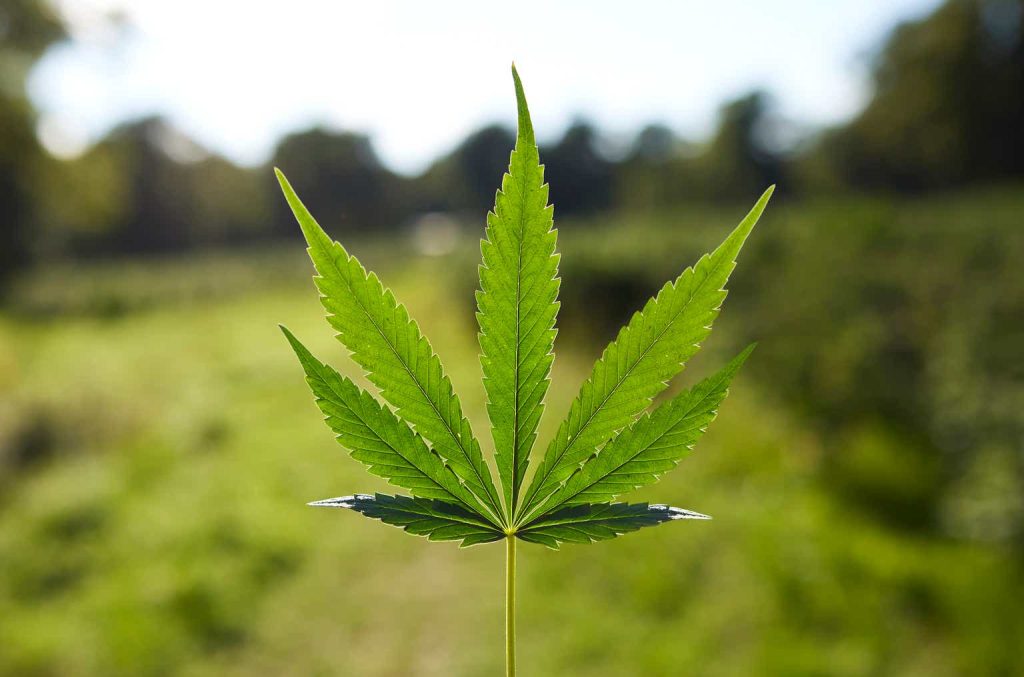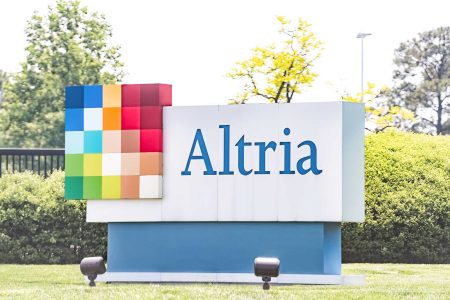Editor’s note: Seeking Alpha is proud to welcome FR Research as a new contributing analyst. You can become one too! Share your best investment idea by submitting your article for review to our editors. Get published, earn money, and unlock exclusive SA Premium access. Click here to find out more »
Thesis Overview
On 4/30/24 the Department of Justice (“DOJ”) confirmed after a leak from the Associated Press (“AP”) that they have recommended cannabis be rescheduled from a Schedule 1 to a Schedule III drug. This is arguably the single largest potential catalyst the U.S. cannabis industry has ever seen and will have a profound impact on the entire sector if/once implemented which I believe happens in a few months.
My favorite way to play this theme is Verano Holdings Corp. (NEOE:VRNO:CA) (OTCQX:VRNOF). I believe Verano is a strong buy and my Base/Bull/Bear case valuations for the stock are C$32/C$52/C$4, respectively. Verano is already one of the largest and most profitable U.S. cannabis multi-state operators (“MSOs”), and the proposed rescheduling of cannabis will nearly double FCF for Verano by eliminating the 280E tax requirement. The scheduling change would also likely enable large institutional investors to put capital in the space, something that is currently inhibited by marijuana’s status as a Schedule I drug. FY25 Bloomberg consensus for VRNO FCF is $128.9mm – adding back the ~$80mm in FCF, Verano would have saved last year via the elimination of 280E taxes. Verano is currently trading at a ~12% FCF yield vs. growth CPGs [Celcius (CELH)/Monster (MNST)] trading at an average of ~2.6%.
The lack of institutional capital currently in the space and the unsophisticated retail investor base currently dominating the sector affords investors a unique opportunity to front run somewhat “known” but very misunderstood news.
For those unable to invest in VRNO CN (whether for geographical or liquidity limitations) it is worth highlighting that the 280E tax removal theme is not unique to VRNO CN, rather it applies to the entire U.S. cannabis industry. An alternative way to play this theme is via the MSOS ETF (MSOS), an ETF that holds positions in the various U.S. MSOs. In addition to VRNO CN I hold both equity and option positions in MSOS and equity positions in Curaleaf Holdings (CURA:CA) (OTCPK:CURLF) and Green Thumb (OTCQX:GTBIF) for broader and more diversified exposure to the U.S. cannabis theme.
Company Overview
This is primarily an industry change bet so I will keep the company overview section on Verano brief. Verano is an integrated “seed-to-sale” U.S. cannabis multistate operator that owns their own cultivation facilities and sells through both wholesale and retail channels (wholesale/retail revenue split for FY23 was 68%/32%). Key facts:
- FY23 Rev. $938mm, EBITDA $305mm
- 32% EBITDA margin, highest of the U.S. MSOs
- FY23 ending net debt/EBITDA ~0.9x
- Active in 13 states with:
- 14 cultivation and production facilities
- 139 retail locations
- ~700 active wholesale accounts
- Founder/CEO George Archos directly owns ~14.3mm shares, ~4.2% of float
Verano is my preferred horse with which to ride the industry thematic given their scale, best-in-class margin profile and balance sheet and positions in both limited license states and states with near-term growth catalysts.
Industry Overview
The U.S. cannabis industry is currently plagued by a complex patchwork of regulations. While cannabis is federally illegal, 38 states have legalized cannabis is some form.
The conflicting federal vs. state regulation has created a dynamic where each individual state has set their own cannabis rules and cannabis cannot be transported over state lines. I am not going to cover the individual state by state dynamics, though suffice to say some states are more desirable for operators than others (e.g., Illinois limits retail licenses which creates a better margin environment relative to some states that do not cap the number of issued licenses). This is part of my preference for playing this theme via Verano as their exposure to limited license states is one of the reasons for their best-in-class margin profile.
How cannabis is scheduled is the single most important item to understand in terms of potential upside for Verano (and the sector in general). The Controlled Substances Act (“CSA”) categorizes all substances with potential for abuse and limited medical use into five schedules ranging from Schedule I (most restrictive) to Schedule V (least restrictive). Cannabis is currently scheduled as a Schedule I drug – this is the same category that heroin is placed in and a higher schedule than more dangerous drugs such as fentanyl and cocaine (both are Schedule II drugs).
The tax implications of being a Schedule I drug are immense due to a regulation called Section 280E which applies to Schedule I and II drugs. In a nutshell 280E prevents companies from deducting regular expenses for income tax purposes. This means that cannabis companies currently pay income tax essentially on gross profit, not gross income, as marijuana is a Schedule I substance. As mentioned in the opening remarks (and will be discussed further later on), if the 280E tax burden was removed for Verano specifically the company has said this would have saved them at least $80mm in cash flow in FY23. Over the past four years (FY20-FY23) Verano has incurred over $300mm in excess 280E tax burden.
Cannabis Rescheduling Process
In October 2022 President Biden asked the Department of Health and Human Services (“HHS”) and the Drug Enforcement Agency (“DEA”) to initiate the process of reviewing how marijuana is scheduled. This was followed up by a Schedule III recommendation by HHS in August 2023 and the review currently sits with the DEA who will likely issue a proposed rule shortly. I say “shortly” as on 4/30/2024 the DOJ confirmed that they had circulated a proposal to reclassify marijuana from Schedule I to Schedule III. As reported to Marijuana Moment:
“Today, the Attorney General circulated a proposal to reclassify marijuana from Schedule I to Schedule III,” Justice Department Director of Public Affairs Xochitl Hinojosa said in a statement to Marijuana Moment on Tuesday evening. “Once published by the Federal Register, it will initiate a formal rulemaking process as prescribed by Congress in the Controlled Substances Act.”
While I do not know exactly when the proposed rule will get published to the Federal Register I expect it to happen imminently given the DOJ has confirmed the proposal and cannabis reform has been made an election year priority by President Biden. After the proposed rule is published in the Federal Register there is typically a 60 day public comment period, after which the DEA will review the commentary received and issue a final scheduling decision.
I do not believe the comment period will derail an ultimate move to Schedule III. The most prominent argument I’ve seen from anti-marijuana reform groups center around the drug’s perceived high potential for abuse and lack of medical value. This is exactly what HHS and the FDA studied and concluded otherwise in their initial recommendation to the DEA to reschedule cannabis. The HHS recommendation was publicly released via a Freedom of Information Act (“FOIA”) request earlier this year and the science-backed recommendation can be read here for those interested.
It is also worth noting that to the best of my knowledge the DEA has never refused to reschedule a drug after receiving a recommendation from the FDA. Source (link here, see pg. 61) is testimony from Matthew Strait, a senior policy adviser for the Diversion Control Division of the Drug Enforcement Administration during a 2020 House Subcommittee hearing. Per pg. 61 of the transcript:
- Mr. Griffith: All right. So you can confirm that the DEA has never refused to reschedule a compound after being given a recommendation to do so by the FDA or the Secretary?
- Mr. Strait: I am certainly not aware of any instance where that would be the case.
In sum, I think it is highly likely that the DEA publishes a Schedule III proposed rule recommendation to the Federal Register shortly and this recommendation is ultimately ratified as a Final Rule.
Why Does the Opportunity Exist?
The obvious question is why does the opportunity exist given it is arguably “somewhat” known that cannabis is being rescheduled? Verano popped ~26% on 4/30/24 when the AP leaked the news that the DEA was set to reschedule cannabis only to immediately drop ~(18%) on 5/1/24, so what gives?
Issue 1: The DEA hasn’t published a recommendation to the Federal Register yet so it’s still not confirmed they are recommending a Schedule III designation for cannabis. I have seen some skepticism circulating on Twitter that despite the Associated Press leak nothing is official yet. This theory was Tweeted by the CEO of another U.S. MSO Green Thumb (ticker: GTII CN) and appears to have gotten some traction with retail investors.
Resolution: As noted earlier the DOJ already confirmed they were circulating a proposal to reclassify cannabis. I believe this will be published to the Federal Register shortly.
Issue 2: While 70% of Americans support legalizing marijuana there are still vocal opponents to reform citing issues such as the high potential for abuse and lack of medical value. Thus I said “somewhat” above as there are still fears that something could change during the comment period.
Resolution: I addressed this earlier and my money is on the science as cited by HHS/FDA. I would encourage anyone with doubts to read the HHS recommendation that was released via a FOIA request.
Issue 3: Even if cannabis is moved to Schedule III it could take a long time before a Final Rule is published, so even if you’re correct on rescheduling the U.S. MSOs won’t see any benefits for a while.
Resolution: To be clear there is no official timetable for how long it will take the DEA to reach a Final Rule decision once the public comment period closes, but it is important to remember why we are even in this process – election year politics. It was President Biden who initiated this entire process back in late 2022 and both the President and the VP have been vocal about cannabis reform this year. It is also worth noting both the head of the DEA and head of DOJ were appointed by President Biden. Do you think the head of the DEA and the head of the DOJ, both of which are Biden appointees, are going to stonewall their boss in an election year on a reform item he is campaigning on by delaying a decision? I highly doubt it, and I think it is likely a Final Rule is published prior to the election as Biden wants a win. The CEO of Curaleaf (ticker: CURA CN), another U.S. MSO, said he is hearing the target for the Final Rule is September 1st (see minute 3 of podcast here).
Issue 4: There is currently very little institutional capital in the sector given cannabis’ status as a Schedule I drug. This status also helps prevent U.S. MSOs from listing on a major U.S. exchange right now such as the NYSE or Nasdaq. Per a Jefferies equity research note from June 2023 (this is the most recent data I have although I do not believe much has significantly changed) the institutional ownership as a percentage of float for the U.S. MSOs as a whole was only 6.9%.
Resolution: This point is extremely important. This is both the single largest barrier to entry for some at present and what I believe to be the greatest advantage for others who can invest now. Rather than lack of interest I believe institutions are prevented from owning the U.S. MSOs today given the regulatory red tape associated with cannabis’ status as a Schedule I drug and the lack of primary exchange listings as a result. I can point to a few supporting anecdotes here:
- Verano currently trades on the CBOE Canada and the U.S. OTC market given the regulatory status of cannabis
- As a result of being relegated to lesser exchanges liquidity is not great today, with the YTD average daily value traded for Verano on the CBOE being ~$3.9mm (volume ~712k shares) as of 5/1/24 (data per Bloomberg in USD)
- Compare this to the trading activity of Canopy Growth (ticker: CGC)
- Canopy Growth is a Canadian cannabis company. As they operate in Canada where cannabis is legal and they do not have operations in the U.S. CGC is allowed to trade on the Nasdaq
- The YTD average daily value traded for Canopy Growth on the Nasdaq has been ~$88.4mm (volume ~11.1mm shares) as of 5/1/24 (data per Bloomberg in USD)
- I want to again reiterate that Canopy Growth does not have U.S. operations and is in no way a beneficiary of a potential U.S. rescheduling in the same manner that Verano is given the 280E tax benefit Verano would receive (this tax benefit would not apply to CGC at present). That said, let’s compare how the two names traded on 4/30/24 when the news of the potential Schedule III decision leaked:
- VRNO CN: traded ~3.7mm shares for a total value traded of ~$22.1mm USD
- CGC: traded ~83.6mm shares for a total value traded of ~$1.0B USD
Despite not really benefitting from Schedule III CGC traded almost 46x the dollar value that Verano did given Canopy Growth is generically a “weed company” and is listed on a major U.S. exchange. This is important as I believe that a move to Schedule III would allow for the U.S. MSOs to uplist to a major U.S. exchange such as the NYSE or the Nasdaq, helping facilitate institutional ownership.
This is a gray area as NYSE/Nasdaq set their own listing requirements, but I believe there is nothing explicitly preventing cannabis companies from listing today aside from the risk tolerance level of the exchanges themselves as they do not want to touch a Schedule I substance. Notably, U.S. cannabis cultivator/retailer Glass House Brands (ticker: GLAS/A/U CN) explicitly said in a recent investor conference that they have heard from both NYSE and Nasdaq that “the hurdle for them is Schedule 3”. This was from the QX Best Investor Conference on 4/18/24, transcript pulled from AlphaSense:
Graham Farrar (President/Co-Founder): It says a lot about the cannabis industry, Mike, and just where we are and how early we are, the idea that we get treated like every other business is what people are the most excited about, right? I think if you’re thinking of investors out there, like that’s the stage that you’re at, where if we just got treated like every other business, it would be a massive upside lift, so it kind of illustrates the headwinds that cannabis deals with out there. And we’ve heard now from both the NYSE and the Nasdaq that the hurdle for them is Schedule 3. So, rescheduling potentially opens the door for uplisting to the US exchanges, which would be another – again, just like regular other US business to be able to list on the US exchange. But again, massive upside potential from that as well.
This was also seemingly corroborated by the CEO of Curaleaf (see minute 20 in the podcast linked earlier) where he mentioned the company was “contacted by a major exchange” on the same day as the Schedule III leak. Uplisting to a major U.S. exchange would be a game changer for the U.S. cannabis MSOs.
Valuation/Price Target
If we get a Schedule III designation for cannabis I believe this legitimizes the sector for institutional capital and will lead to an immediate re-rating for the entire U.S. cannabis sector. The legal U.S. cannabis is estimated to grow from ~$34B in 2023 to ~$57B as additional states legalize (primarily recreationally). So what would you value a CPG company that is in the early innings of a TAM expansion story?
I would argue the energy drink names (CELH/MNST) are the best comp set – these are both growth CPG companies that have a similar (albeit lower than Verano) margin profile. Using Bloomberg consensus for FY25 FCF these names currently trade at an average FCF yield of ~2.6% at time of writing:
- CELH: 1.6% FCF Yield
- MNST: 3.7% FCF Yield
You could make a case for alcohol names as a better comp group given they both fall in the “sin stock” bucket, though I would point out the maturity of the alcohol market relative to cannabis (i.e., lower growth) and the generational preference for cannabis amongst younger adults. Per Bloomberg, 69% of Gen Z prefers marijuana to alcohol.
At time of writing Verano is trading at a ~7.3% FCF yield using FY25 Bloomberg consensus FCF of $128.9mm, however this needs to be adjusted to account for the benefit of the 280E tax removal which I believe will be enacted this year. Verano has publicly stated removing 280E would have saved them >$80mm, so at a minimum adjusted FCF for FY25 should move to ~$209mm. I actually believe this figure should be higher given the expectation for growth, but since the Company has publicly verified the FY23 tax savings I am using it as a proxy.
On ~$209mm in FCF Verano is trading at a nearly 12% yield – we can argue over what the “perfect” comp is, but my point is that Verano is extremely undervalued regardless. My Base/Bull/Bear price targets are:
- Current Px as of 5/2/24 close: C$7.02
- Base: ~C$32.00
- Derived using CPG comp mean 2.6% FY25 FCF yield (inclusive of 280E adjustment)
- Bull: ~C$52.00
- Derived using comp CELH 1.6% FY25 FCF yield (inclusive of 280E adjustment)
- Bear: ~C$4.00
- Derived using 12% FY25 FCF yield (not inclusive of 280E adjustment)
Conclusion
In sum, I believe Verano is a strong buy and I see significant upside over the next 12 months should we get a Schedule III designation for cannabis. A Schedule III designation would have material cash flow implications for the entire sector and would additionally likely unlock institutional investment in the space, something that is significantly lacking at present.
Catalyst Path
- Schedule III Proposed Rule formally published in the Federal Register
- Schedule III Final Rule formally published in the Federal Register
- I expect this to happen before the Presidential election
- Uplisting to a major U.S. exchange
Risks/Mitigants
- DEA does not recommend cannabis be moved to a Schedule III drug
- This is obviously the largest risk factor, though for reasons covered ad nauseum in the write-up I do not see the DEA recommending anything other than a Schedule III Final Rule
- Process takes longer than expected to play out (i.e., no decision before election)
- Hard for me to believe that the President and Vice President would be as vocal as they have been on cannabis reform if this was something that was not going to get done prior to the election
- Cannabis is moved to Schedule III but NYSE/Nasdaq still refuse to allow the U.S. MSOs to uplist
- I take comfort in the recent commentary from Glass House Brands and Curaleaf
- It is also possible that Verano could list on the CBOE U.S. exchange as an alternative to the NYSE/Nasdaq. While it is equally as opaque if CBOE would allow this, Verano is already listed on CBOE Canada so it’s potentially an easier crossover
- Even if we do not get an uplisting I still think it is likely a scheduling change would remove internal compliance barriers for some institutional investors leading to an increase in ownership
- Verano (and all of the U.S. MSOs) are currently highly volatile as a result of the thin liquidity and lack of institutional ownership in the sector today
- To me this is the source of the greatest upside for the investment – there is not a lot of “real” money behind the Company right now, but yet institutions have demonstrated the desire to be involved in the cannabis sector should the regulatory environment change (e.g., refer to the CGC trading volume outlined above).
- There is not a mitigant to the volatility per se, just something you must be comfortable with until the catalyst path plays out
Editor’s Note: This article discusses one or more securities that do not trade on a major U.S. exchange. Please be aware of the risks associated with these stocks.
Read the full article here













